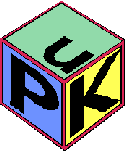 |
KI 2001 Joint German/Austrian Conference on Artificial Intelligence PuK2001 15. Workshop "Planen, Scheduling und Konfigurieren, Entwerfen" Wien, 18. September 2001 |
|
|
CALL FOR PAPERSKI 2001 WorkshopPuK2001: 15. Workshop Planning/ Scheduling and Configuration/Design18. September 2001WienThe fields of planning, scheduling, configuration, and design have many features in common and are often tackled by similar technologies. However, the communities do not overlap and joint meetings are rather rare. The PuK-workshop will be such a joint meeting and provide the possibility for the exchange of ideas, concepts, and problems between researchers from the areas mentioned.The workshop therefore aims in bringing together researchers as well as practitioners in the areas of planning, scheduling and design for the presentation and discussion of new problem areas, new problem solving approaches and new systems developed.
General TopicsThe general topics of interest of the PuK comunity include but are not limited to:
Focus: SchedulingSimilar to some earlier workshops we intend to focus on one area. This year, part of the workshop will be specially focused on Scheduling. Within the focal part of the workshop we anticipate several sessions dealing specifically with this year's focus. In that context we solicit papers on topics such as
Paper submissionPapers in English or German are requested especially for the focal issue but will be also accepted for the other research topics. The papers should be up to 8 pages and will be reviewed by the organizing/ program committee. Please sent papers electronically in PDF, PS or Word-Format to the contact address below and use the KI2001-style. Selected papers may be included in a special issue of AICOM. All attendancies have to register for KI 2001.Important dates
18.9.2001: workshop PuK2001 Program committee
Susanne Biundo, Universität Ulm, D ContactDr. Jürgen Sauer |